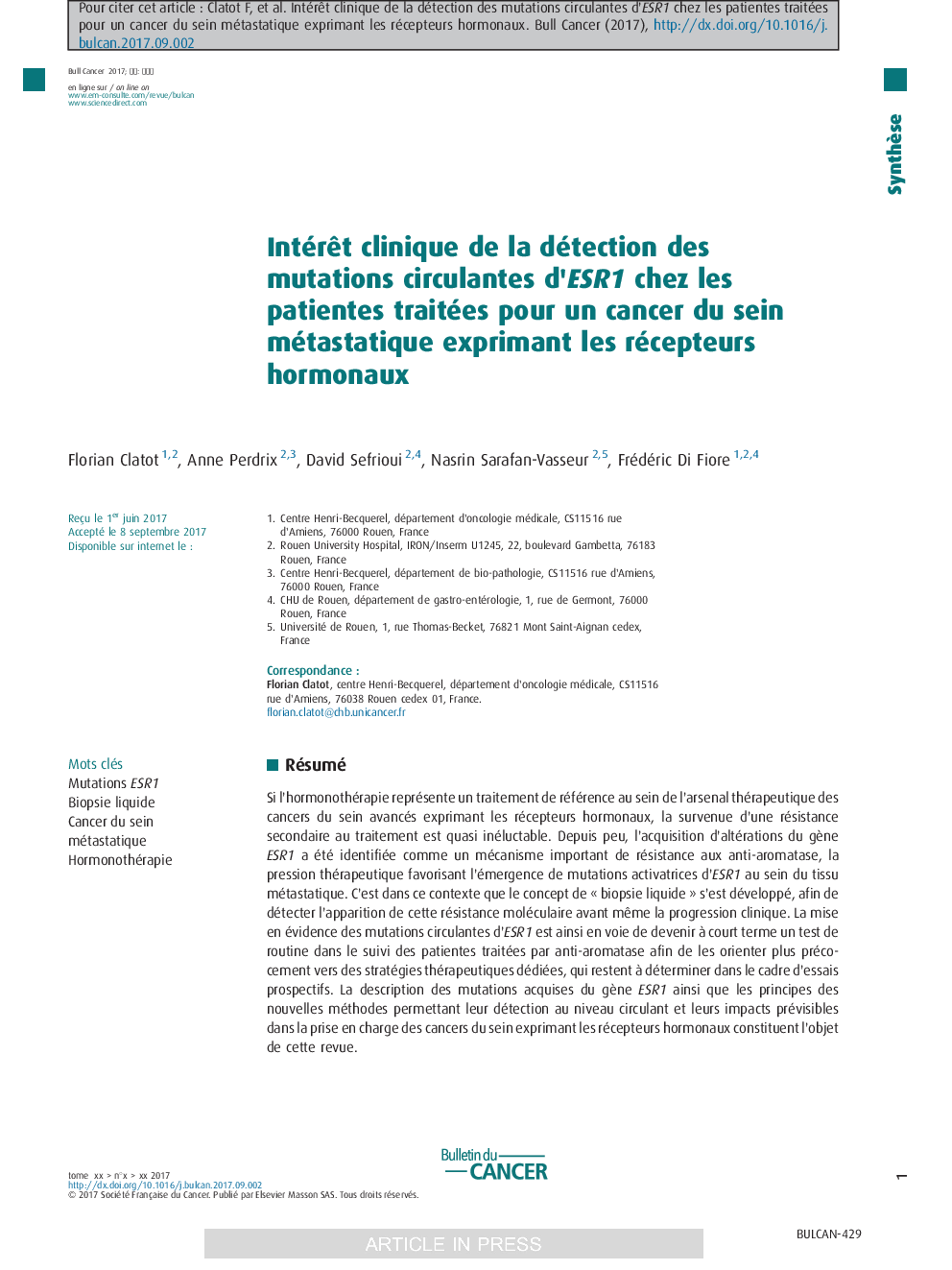| Article ID | Journal | Published Year | Pages | File Type |
|---|---|---|---|---|
| 8785610 | Bulletin du Cancer | 2018 | 9 Pages |
Abstract
If hormone therapy is a key treatment for hormone receptor positive advanced breast cancers, secondary resistance occurs as a rule. Recently, acquired alterations of the ESR1 gene have been identified as a mechanism of resistance on aromatase inhibitor (AI) treatment. The selective pressure by AI exposure during the metastatic setting triggers the emergence of ESR1 activating mutations. In that context, the “liquid biopsy” concept has been used to detect this molecular resistance before progression. Thus, the ESR1 circulating mutation detection will soon be used in daily practice to help monitoring patients on AI treatment and provide an early change for specific therapies that still have to be determined in prospective clinical trials. This review will present the acquired ESR1 mutations, as well as the methods used for their detection in blood and the potential clinical impact of this approach for hormone receptor positive breast cancer management.
Keywords
Related Topics
Health Sciences
Medicine and Dentistry
Oncology
Authors
Florian Clatot, Anne Perdrix, David Sefrioui, Nasrin Sarafan-Vasseur, Frédéric Di Fiore,
